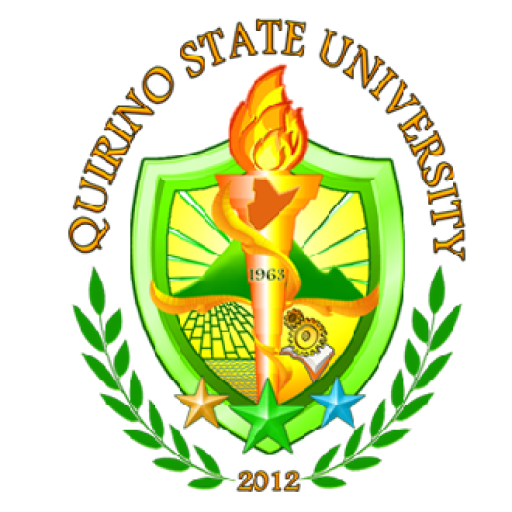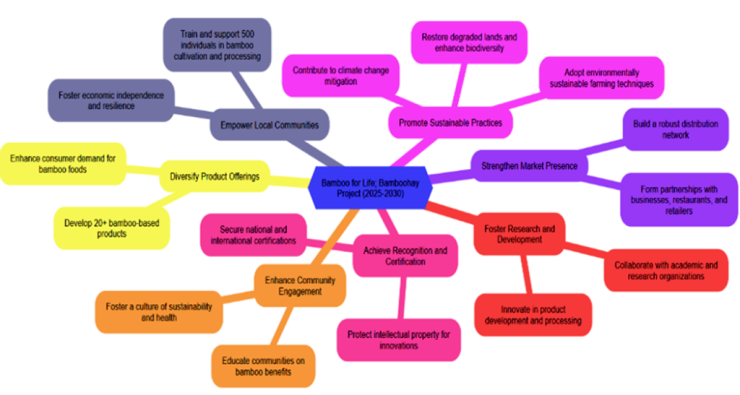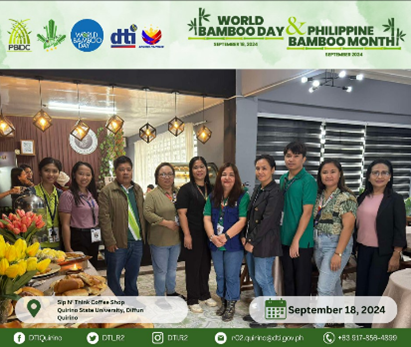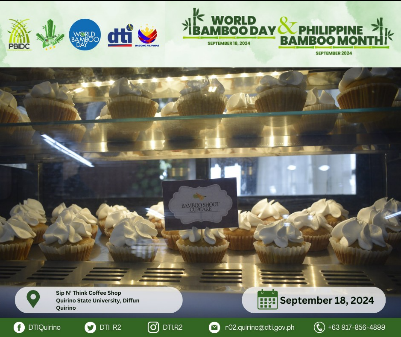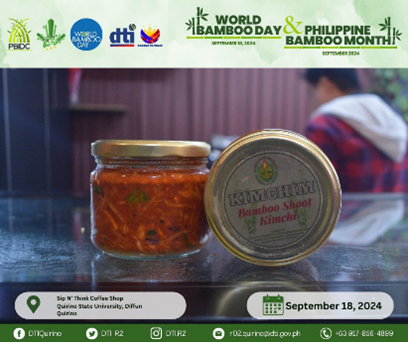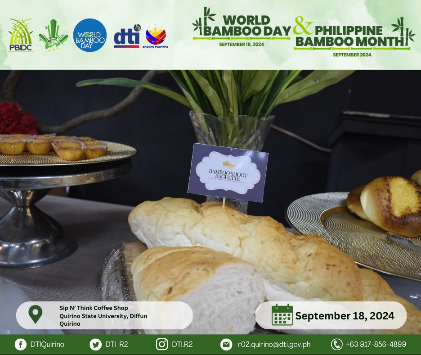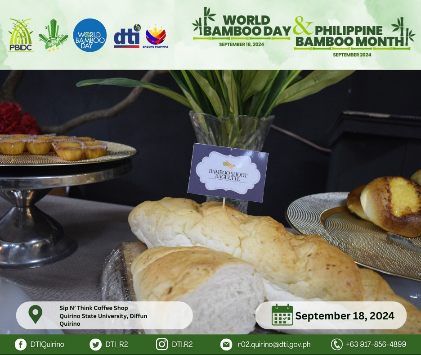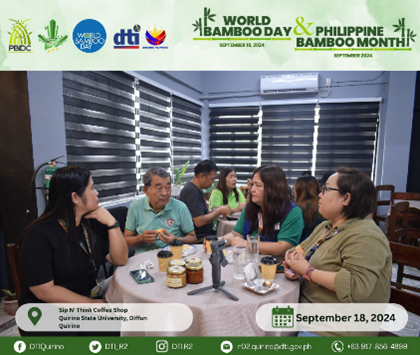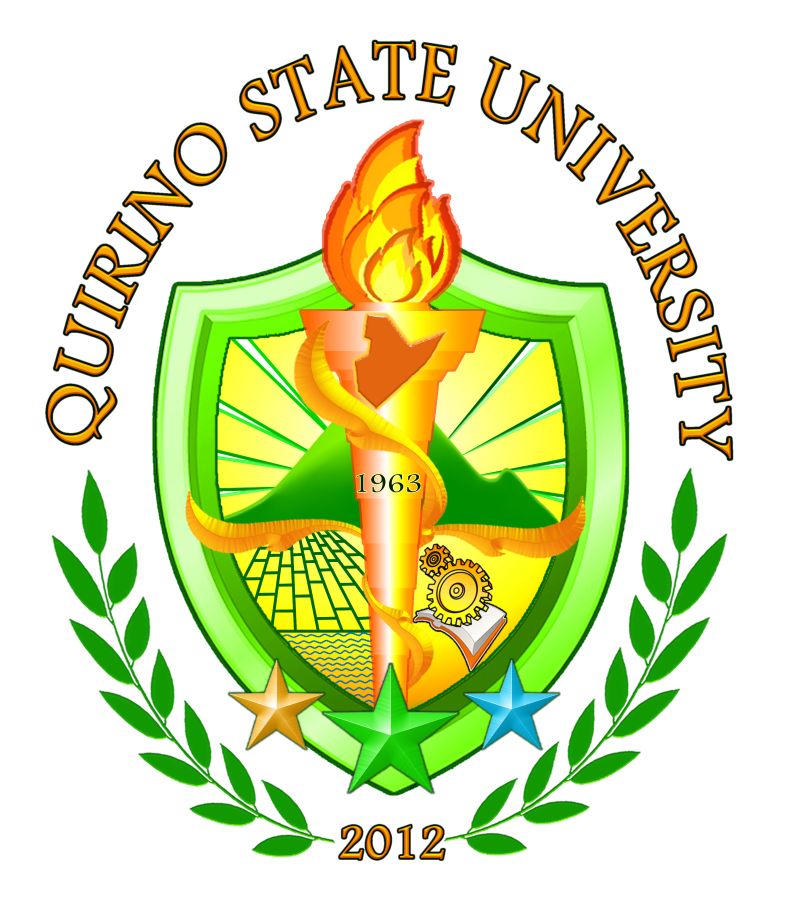A groundbreaking initiative at Quirino State University (QSU) is set to revolutionize the local bamboo shoot industry through the development and commercialization of various bamboo shoot products. Under the leadership of Dr. Hermenegildo F. Samoy Jr., the University President, this project aims to leverage the region’s abundant bamboo resources to enhance economic opportunities for local communities. Jonathan N. Tariga, the project leader, highlights the nutritional value of bamboo shoots and the need to expand their utilization beyond traditional methods. The project has successfully developed eleven distinct bamboo shoot products, which have been awarded Intellectual Property Rights. Additionally, France Marie Ann R. Tacadena, the BSHM Extension Coordinator, together with Princess Lady-Lin C. Eraña, a faculty-extensionist have been instrumental in training eighty-six individuals in product development, with eight participants actively adopting new technologies.
To promote these products, the project employs various marketing strategies, including social media campaigns and participation in local exhibits. This initiative has demonstrated significant positive impacts on the economic and social well-being of its adopters, with plans for expansion to further communities.
BSHM Sustainable Development Goals Initiatives
The “Bamboo for Life: Bamboohay” project aligns with several United Nations Sustainable Development Goals (SDGs), emphasizing its significance in promoting sustainable practices and improving livelihoods. By creating income opportunities through bamboo cultivation and product processing, the project directly contributes to SDG 1: No Poverty, empowering marginalized communities by providing stable livelihoods and reducing income inequality. Bamboo shoots are nutritious and can enhance food security, supporting diverse culinary applications, thereby addressing SDG 2: Zero Hunger, offering a sustainable solution to malnutrition and bolstering local food systems. Furthermore, promoting bamboo consumption contributes to healthier diets, aligning with SDG 3: Good Health and Well-Being by encouraging healthier and more sustainable food choices.
The project fosters job creation and supports local economies through training and technology transfer, contributing to SDG 8:Decent Work and Economic Growth, empowering communities to achieve sustainable economic development while reducing unemployment rates. Bamboo’s rapid growth and carbon sequestration capabilities make it a vital resource for mitigating climate change impacts, supporting SDG 13: Climate Action, helping to reduce greenhouse gas emissions and build resilience against environmental changes. Additionally, bamboo cultivation aids in restoring degraded lands and promoting biodiversity, aligning with SDG 15:Life on Land, by enhancing biodiversity and fostering ecosystem health.
This initiative not only enhances economic prospects but also fosters environmental sustainability to ensure long-term benefits for the community and the planet, making it a crucial component within the framework of the SDGs.
Roadmap for the Bamboohay Project (2025-2030)
In the next five years, the Bamboo for Life: Bamboohay Project envisions becoming a leading model for sustainable development through bamboo cultivation and product innovation. For a sustainable bamboo cultivation, securing a suitable land for propagation and cultivation; and introducing environmentally friendly farming techniques will be one of its focuses. The project will emphasize product innovation and market development by investing in research and development for bamboo-based while establishing regional and global market linkages. This phase aims to drive economic growth through value-added industries and job creation. Environmental stewardship, scaling reforestation efforts, promoting bamboo as a renewable resource, and enhancing biodiversity will also be included in the project. By 2030, the project is geared to be a catalyst for economic growth, social empowerment, and environmental stewardship in the region, contributing significantly in achieving the United Nations Sustainable Development Goals.
By aligning with multiple UN Sustainable Development Goals, the Bamboohay Project is set to serve as a replicable model for achieving a harmonious balance between economic growth, social equity, and environmental sustainability.
The Bamboohay Project Roadmap
Article: Dr. Jonathan N. Tariga
Photos: DTI Region 02
See related articles posted:
https://www.facebook.com/share/p/Fbeduv35tZDXBVdH/
https://www.facebook.com/share/p/pHaRw7kJqPReRqJd/
